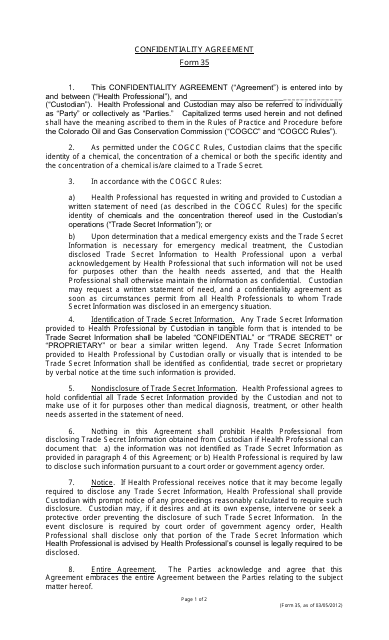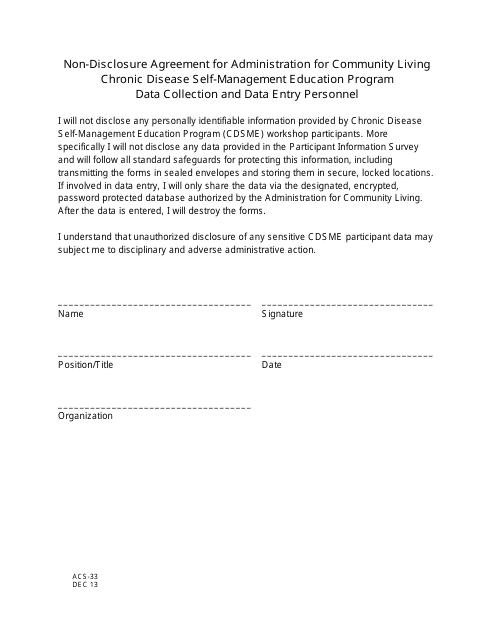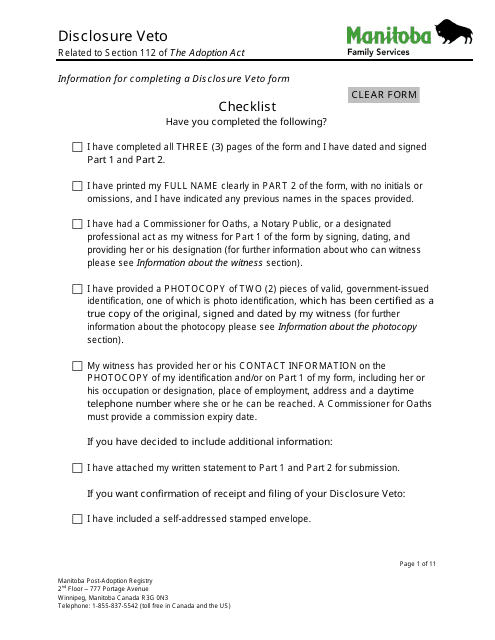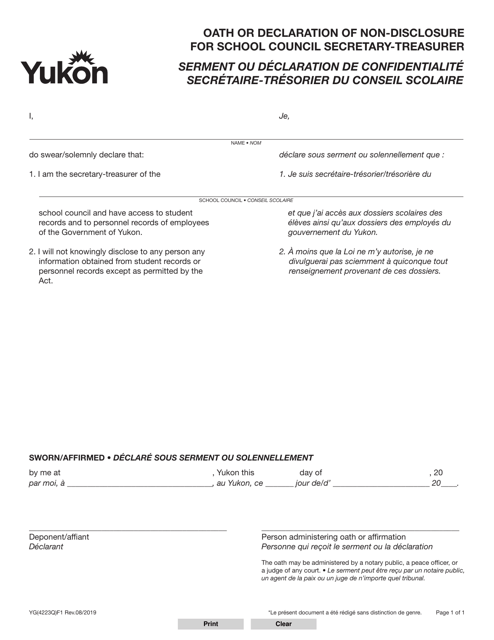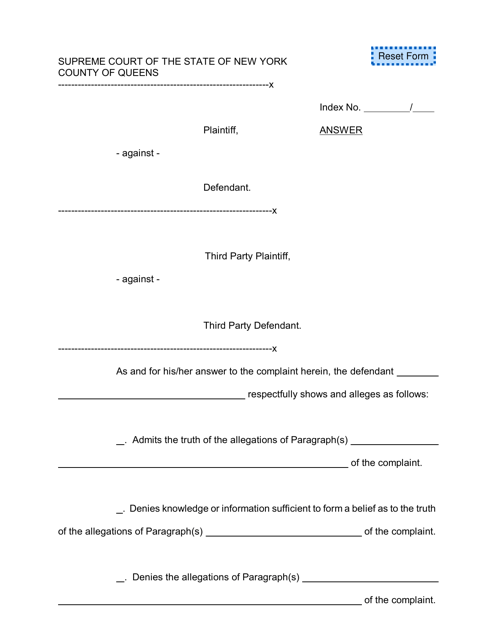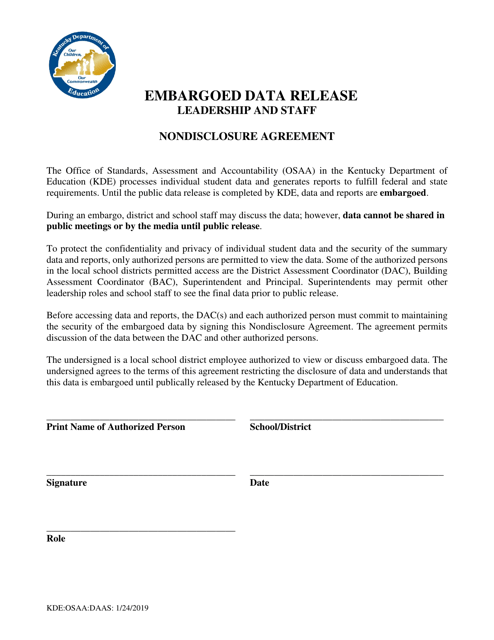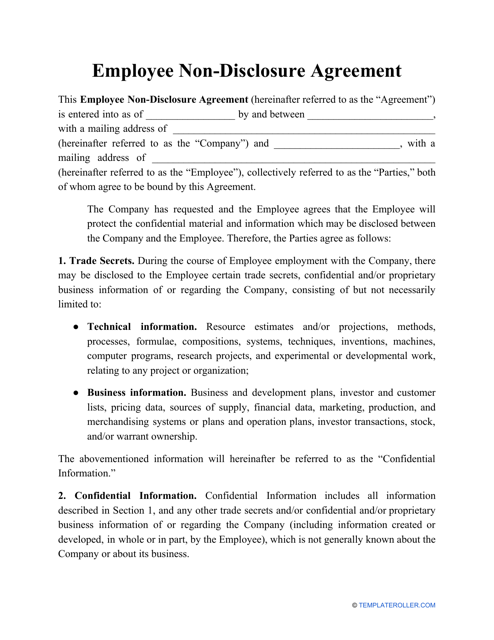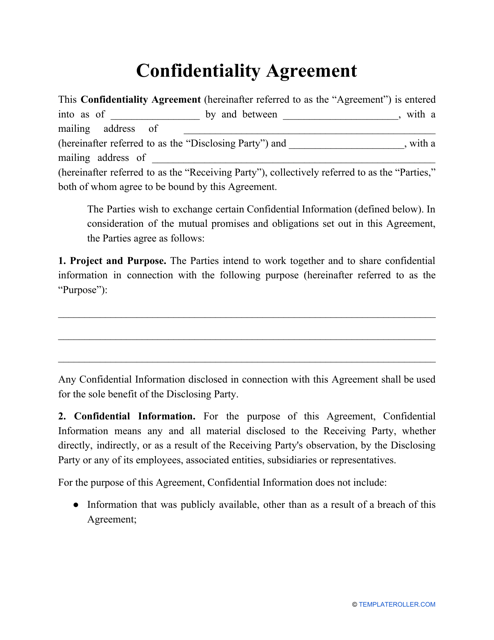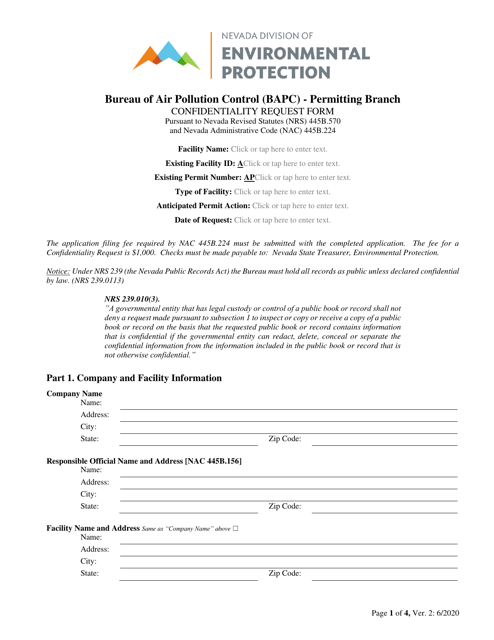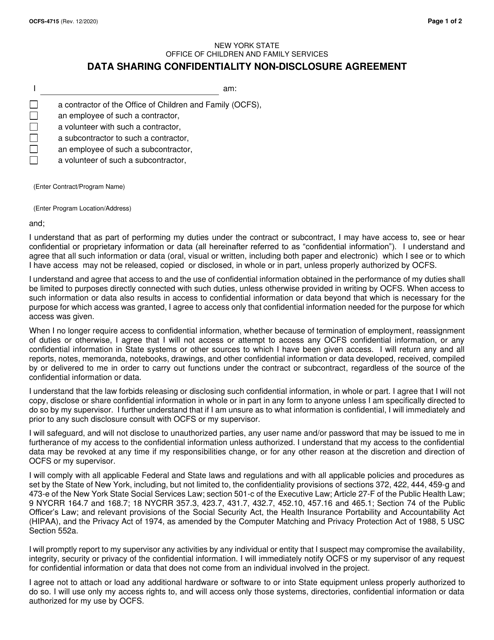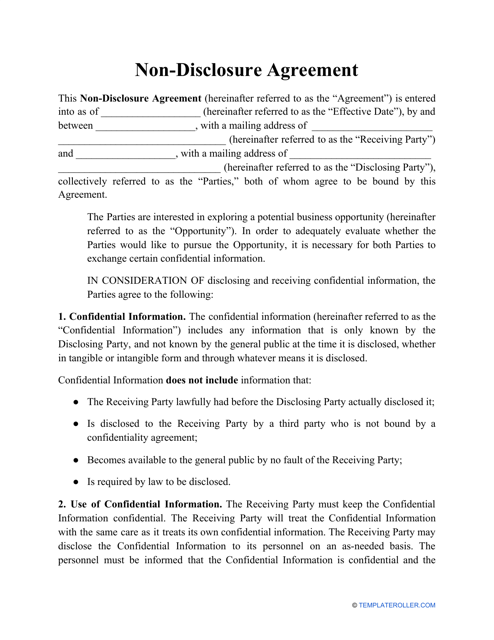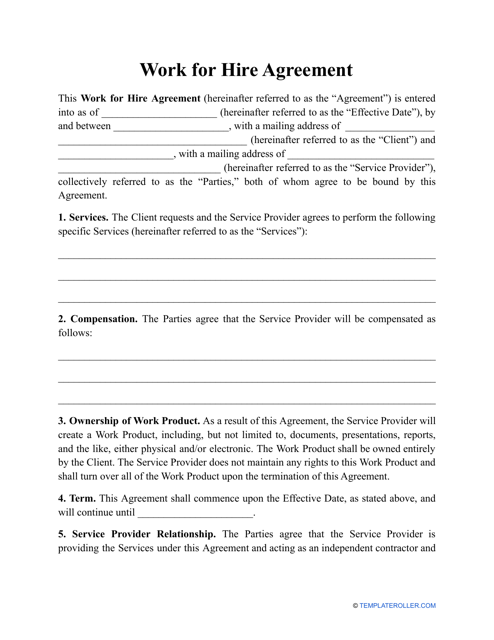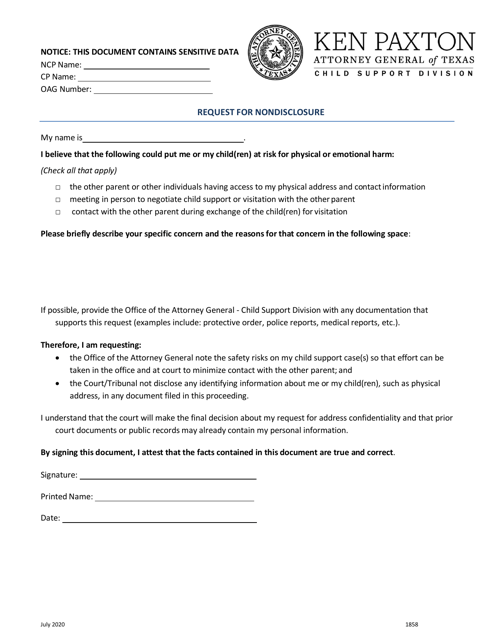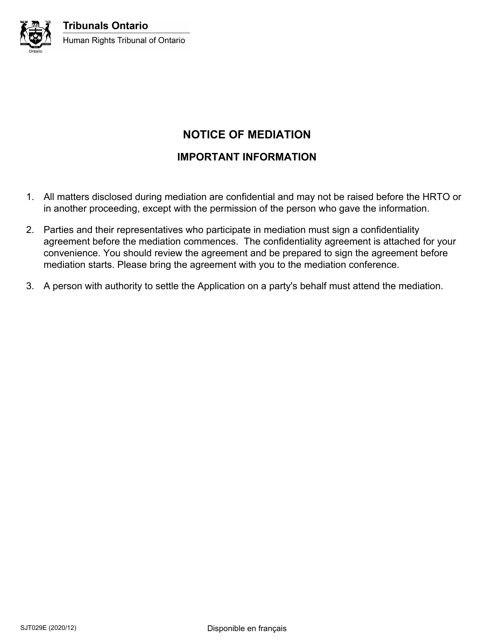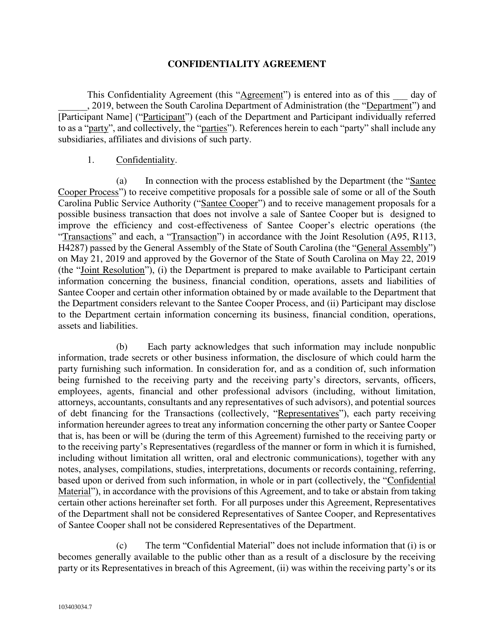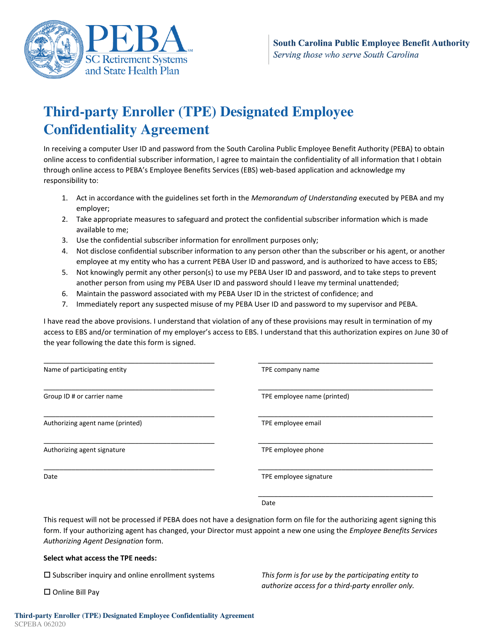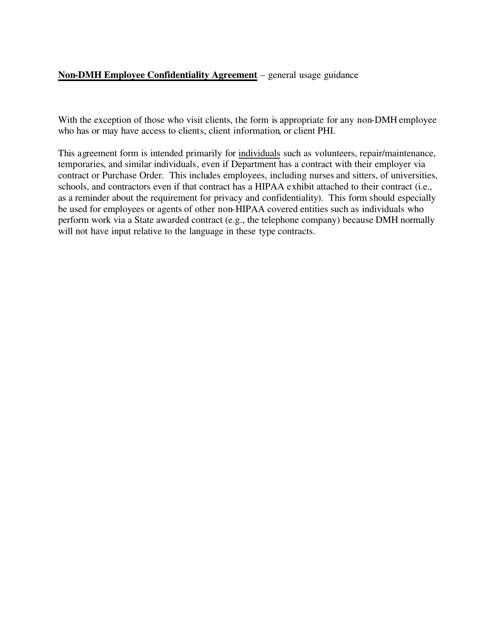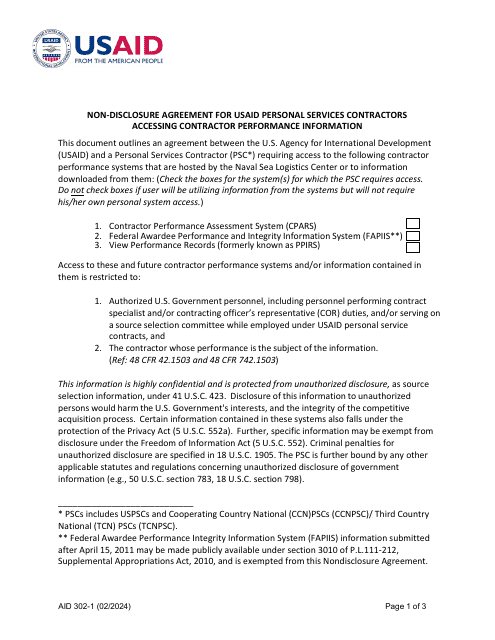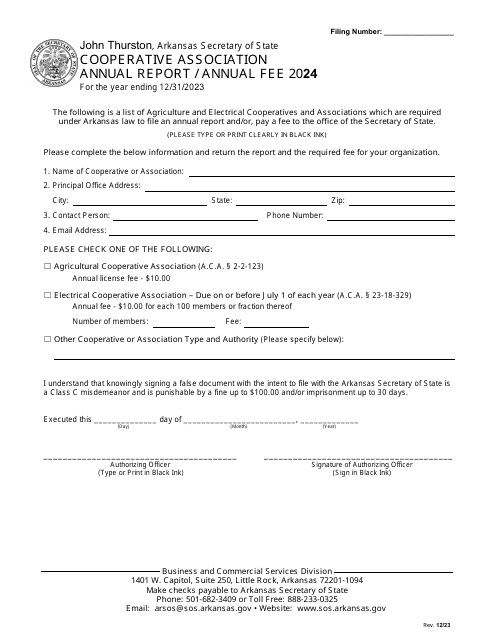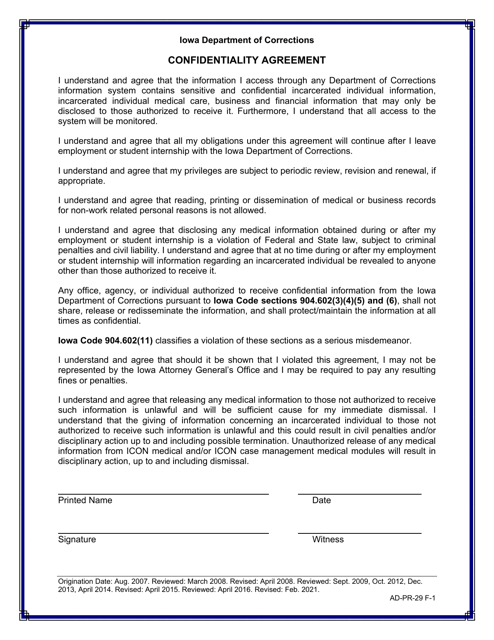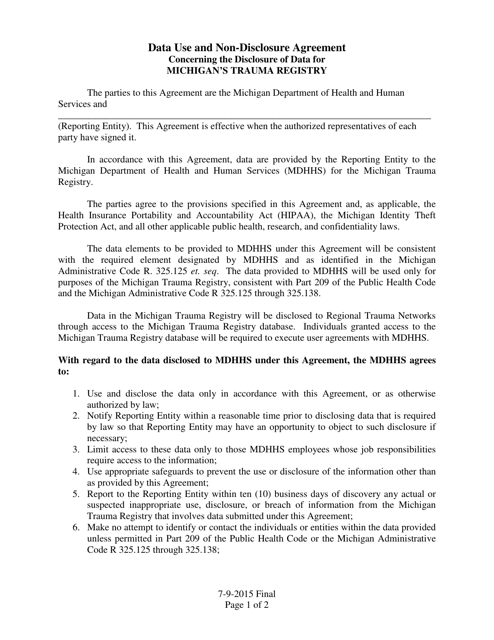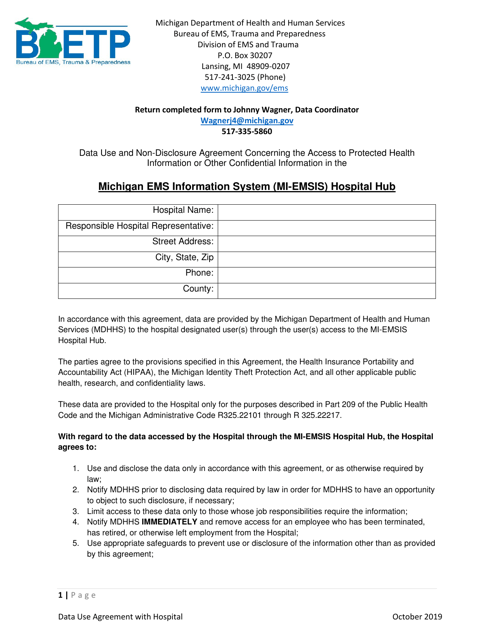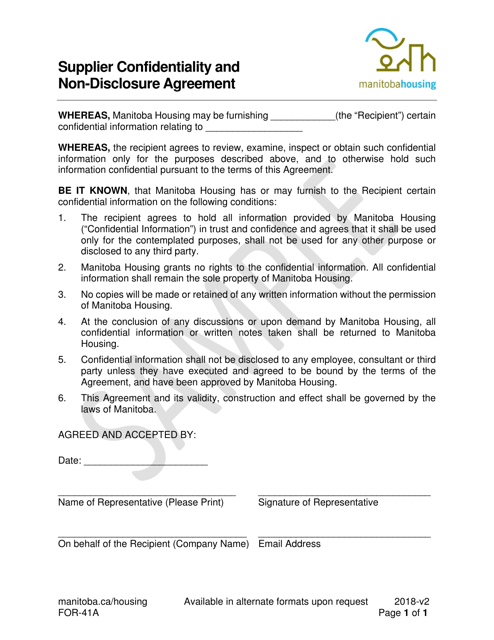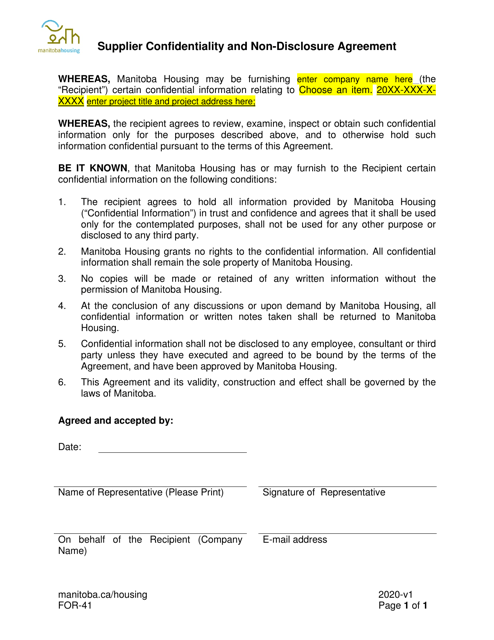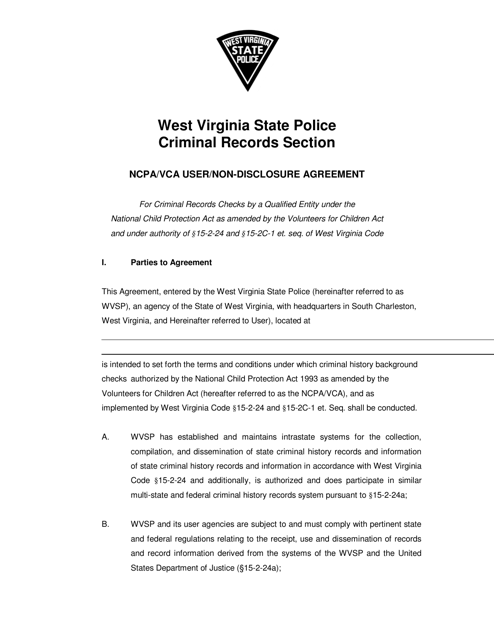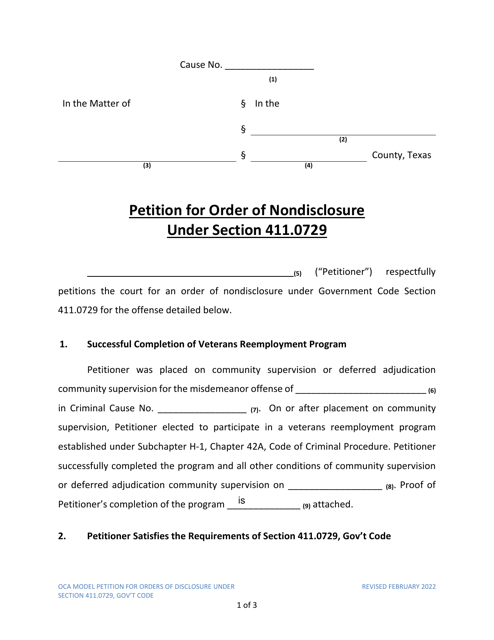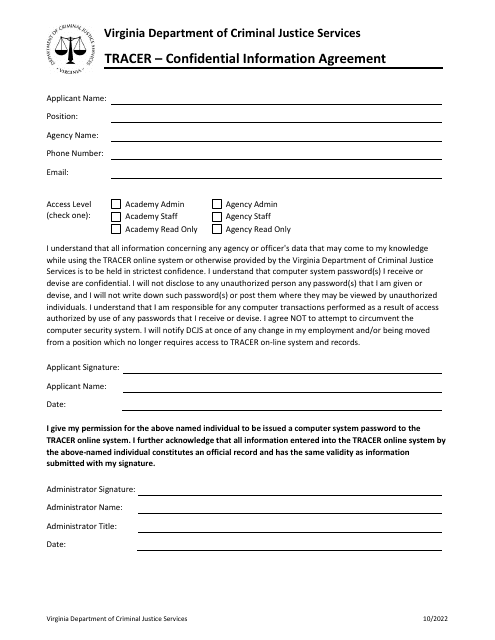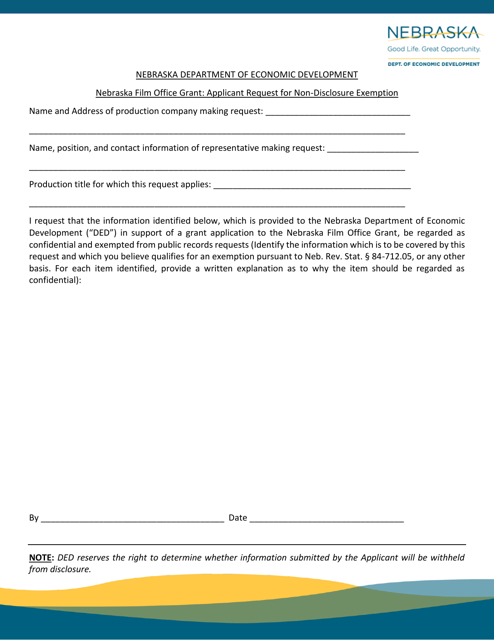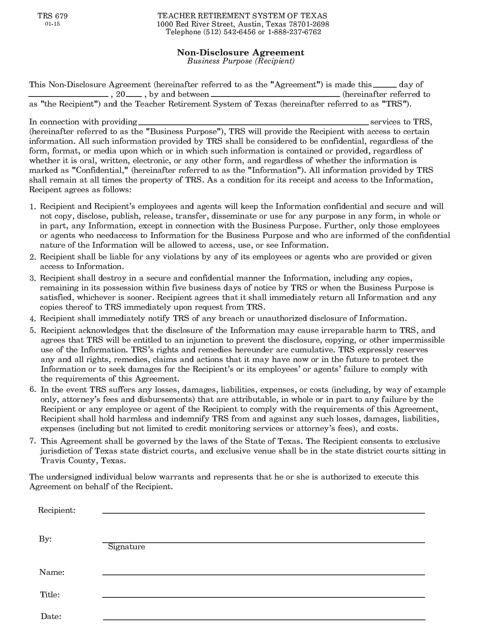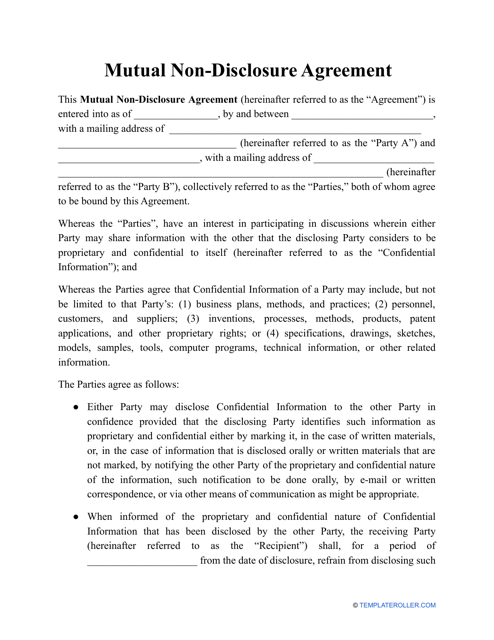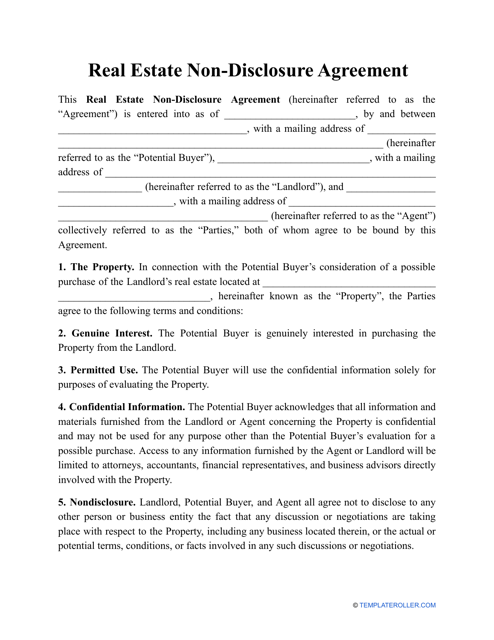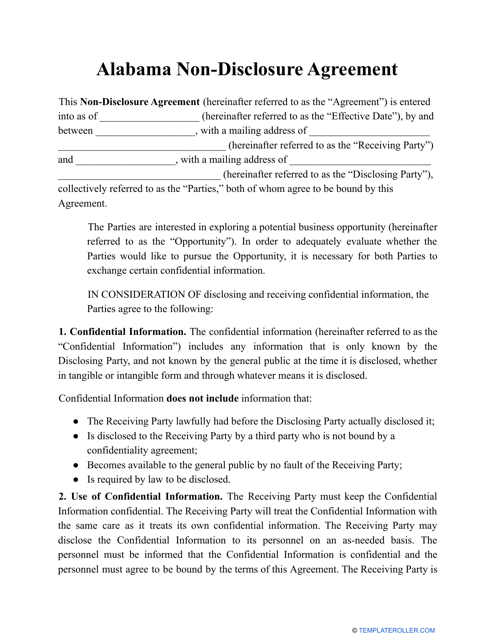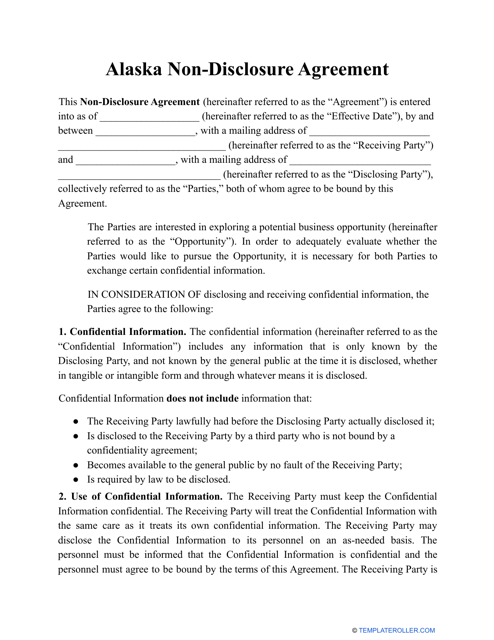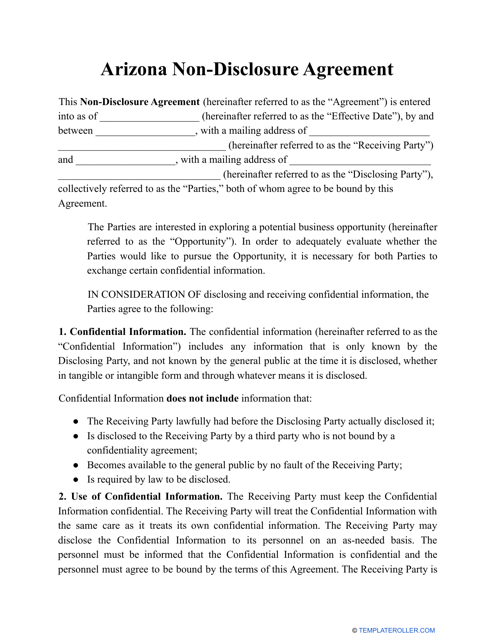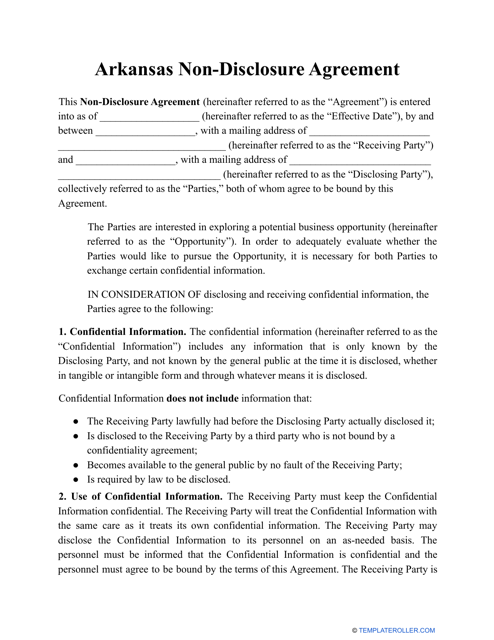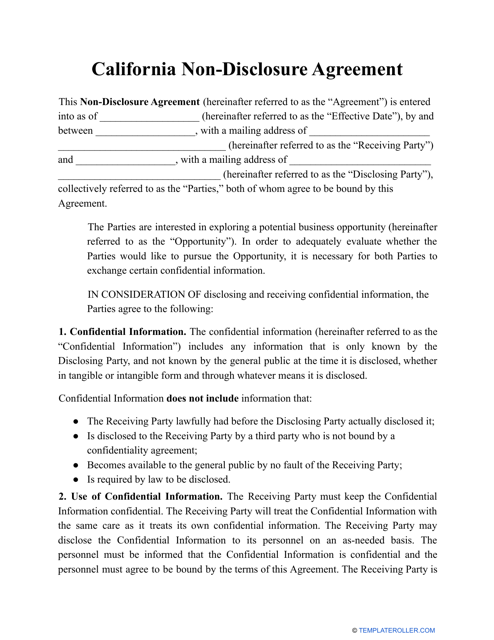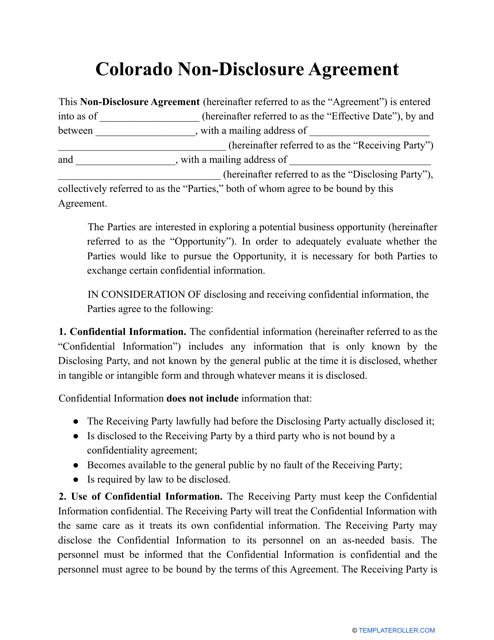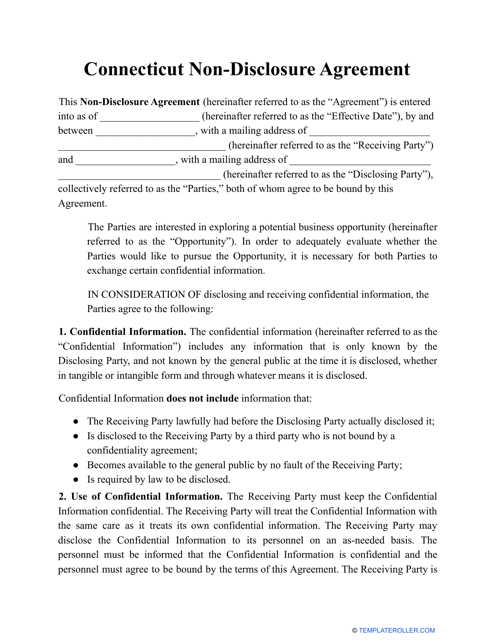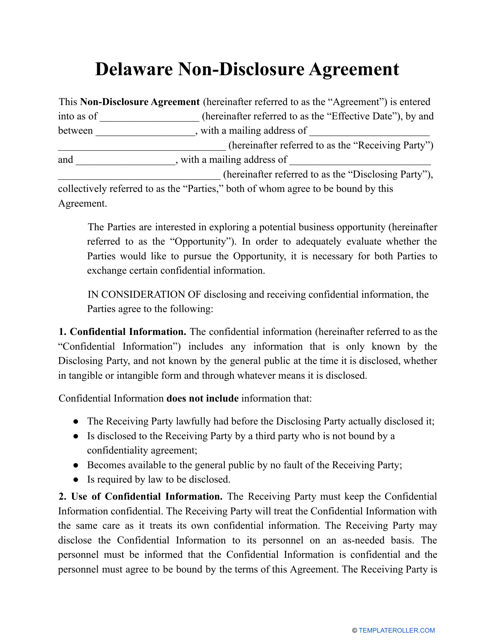Free Non-Disclosure Agreement Templates
What Is a Non-Disclosure Agreement?
A Non-Disclosure Agreement is a legally binding contract prepared to describe the conditions of the confidential arrangement approved by two parties.
Alternate Names:
- NDA;
- Nondisclosure Agreement;
- Proprietary Information Agreement;
- Confidentiality Agreement.
Whether you have consulted with a prospective investor on behalf of your business, hired an employee who will be allowed to work with sensitive documents, or told a purchaser or tenant private details related to your real property, you may offer them to sign an NDA and avoid the release of the information that has significant value for your company or you personally to third parties that may take unfair advantage of it.
Non-Disclosure Agreement Templates by State
Once you decided an NDA is inevitable to guarantee your proprietary information is kept safe, it is time to negotiate the terms of the contract with the party authorized to work with it alongside you or individually. The first step you have to make is to choose the state-specific document whether you are going to draft a short Non-Disclosure Agreement or create a comprehensive contract to cover all the details that become known to one of the parties or both of them during their collaboration. Select the template suitable for your location to confirm you are adhering to local regulations that make your agreement legally enforceable.
Non-Disclosure Agreement Types
- Non-Disclosure Agreement Template. You may use this simple Non-Disclosure Agreement to determine what ideas and secrets you have shared with your counterpart have to remain secret;
- Business Non-Disclosure Agreement Template. Offer an independent contractor, consultant, or lawyer to sign this contract - they will be obliged to keep the information they have obtained access to secret under threat of civil liability;
- Business Plan Non-Disclosure Agreement Template. If you have just discovered or already developed an effective way to manage your organization, determined the objectives of your business, and outlined the goods and services your company will focus on, protect this information from being disclosed by investors, consultants, or employees;
- A Mutual Non-Disclosure Agreement Template typically establishes the mutual obligation of two organizations to refrain from releasing the information they have found out during their collaborative work - a two-way contract will ensure the particulars of your partnerships are not known to any third parties;
- A Real Estate Non-Disclosure Agreement Template is needed during the negotiations to sell or rent out commercial or residential property - the seller or landlord may disclose the information about the real estate to the buyer or tenant to persuade them to sign the document;
- Employee Non-Disclosure Agreement Template. You should propose the signing of this document to the employee before their first work day or during the termination of the employment agreement - the person identified in the Non-Disclosure Agreement for Employees will not disclose the information they have learned working for you to other entities or people, notably your competitors.
Unilateral NDA Vs Mutual NDA
One of the essential elements that must be included in the text of the Non-Disclosure Agreement is the indication of whether both parties are under the obligation to keep the information they have learned during their cooperation confidential or only one party has to do it - the former contract implies the NDA is mutual while the latter is unilateral.
Make sure the responsibility to keep the details private applies to both individuals or companies that sign the papers if you had a mutually beneficial business relationship - for instance, a partnership or merger. In all other cases, a standard NDA can be unilateral since only one party is getting access to trade secrets, bank statements, internal records, etc. Note that you should anticipate a possible dispute taking place when your collaboration is over or terminated before the contract expires so discuss the non-disclosure rules you will follow once you start working with the other party.
How Long Does a Non-Disclosure Agreement Last?
While it is in the best interest of the business to sign a Non-Disclosure Agreement that lasts as long as the local laws permit it, realistically it is hard to enforce the other party to keep the sensitive information secret for longer than four or five years.
Besides, most trade secrets, inventions, technologies, business plans, and strategies shared during the time you have worked together have no real value in various industries after several years so it makes no sense to bind the employee, contractor, or legal expert to the terms of this contract. Yet, there is no one-size-fits-all solution - you should consider all the potential risks and prevent the party that was granted access to proprietary information from suffering an economic or reputational loss - insist on a long-term or indefinite agreement and specify the duration in writing to safeguard your company.
What Happens When You Break a Non-Disclosure Agreement?
Usually, the consequences for violating the terms of the NDA are listed in the text of the document - at a minimum, there should be a reference to the law the parties will refer to when seeking compensation for the contract breach.
Even if you failed to include this provision in your agreement, the courts will accept the claim filed against the breaching party - in the majority of cases, you will be demanded to pay damages and cover the legal fees the plaintiff has incurred. Moreover, if the case is brought to public attention, you are risking your reputation especially when it comes to competitive industries and prominent companies that value public image - do not jeopardize your chances to be employed or invited to participate in an important project just because you decided to release sensitive information that does not belong to you.
Related Forms and Templates:
Documents:
107
Form 35 is an agreement between a health professional and a custodian in Colorado. The parties agree on the confidential treatment of chemicals, to which 10 clauses of the agreement give a detailed explanation.
This form is used for personnel involved in the Chronic Disease Self-management Education Program in New Jersey to sign a non-disclosure agreement with the Administration for Community Living.
This document for the Disclosure Veto in Manitoba, Canada. It is a legal provision that allows individuals to restrict the disclosure of their personal information for certain purposes.
This form is used for the School Council Secretary-Treasurer in Yukon, Canada to make an oath or declaration of non-disclosure. It is available in both English and French languages.
This Form is used for protecting confidential information related to embargoed data in Kentucky.
Use this agreement to protect different types of confidential information (know-how, trade secrets, software, technical information, and other types of proprietary data) from disclosure by an employee.
Have your employees or partners sign a Confidentiality Agreement in order to legally prevent them from disclosing confidential and proprietary information.
This is a legal contract that prevents parties to an agreement from disclosing certain information that is deemed to be confidential.
This is a document used when hiring independent contractors that will help protect both the worker and client from potential contract disagreements.
This document establishes a legally binding agreement to protect the confidentiality of information in the province of Ontario, Canada. It outlines the rights and obligations of the parties involved in keeping sensitive information confidential.
This document is used for protecting the confidentiality of sensitive information in the state of South Carolina. It ensures that the involved parties agree to keep certain information confidential and not disclose it to others.
This document is a confidentiality agreement for designated employees of a third-party enroller in South Carolina. It ensures that employees keep sensitive information confidential.
This document is used for ensuring confidentiality for non-DMH employees in Alabama. It outlines the terms and conditions related to the protection of sensitive information.
This document is used for creating a legally binding agreement to protect the confidentiality of information in the state of Iowa.
This document is for the use and non-disclosure agreement pertaining to the sharing of data for Michigan's Trauma Registry.
This document is used for establishing a data use and non-disclosure agreement for the Hospital Hub in the Michigan EMS Information System (Mi-Emsis) in Michigan. It outlines the rules and regulations for accessing and using the data collected by the system and ensures that information is protected and kept confidential.
This document is a Supplier Confidentiality and Non-disclosure Agreement sample specific to Manitoba, Canada. It is used to protect confidential information exchanged between a supplier and an organization.
This document is a Supplier Confidentiality and Non-disclosure Agreement specific to Manitoba, Canada. It is used to protect confidential information between a supplier and a company.
This document is a User/Non-disclosure Agreement that is used in West Virginia. It establishes the terms and conditions for the protection of confidential information between two parties.
This document is used for applicants requesting a non-disclosure exemption for the Nebraska Film Office Grant in Nebraska.
This type of document is a Non-disclosure Agreement specific to the state of Texas. It is used to protect sensitive information by establishing confidentiality obligations between parties.
This is a legal document that creates confidentiality between all involved parties, ensuring that the agreed information in the contract is not disclosed.
If you are selling a real estate property and wish to keep the information about the property private, you can request the buyer complete this type of template.
Individuals that reside in the state of Alabama may use this type of template as a formal agreement signed by two parties, with one or both of them promising not to disclose confidential information they have learned during their collaborative work or professional relationship.
This type of template refers to the enforceable contract signed by the parties to outline the particulars of their confidential relationship in the state of Alaska.
This type of template is a legal instrument that is often used in competitive industries to ensure that confidential and proprietary information is not leaked to any third parties.
This type of template may be used in the state of Arkansas if you want to prevent the disclosure of a trade secret, unique marketing strategies, or manufacturing processes developed within your company.
Individuals that resided in the state of California may use this type of legal contract to outline the confidential information shared between parties that have a professional relationship and decide to restrict the use of these details to avoid them being known to third parties.
If you live in the state of Colorado and you are the owner of confidential information that you want to make sure the person or organization you disclosed it to does not share it with any third party, this type of form may be used to provide security to all of the involved parties.
Residence of Connecticut may use this template as a written contract that is signed by two parties (individuals or entities) to forbid the sharing of confidential details these parties have shared.
An individual may draft this type of agreement in the state of Delaware to describe the particulars of the confidential relationship between the person that owns the rights to a trade secret, formula, or manufacturing procedure and the individual that receives this information.

